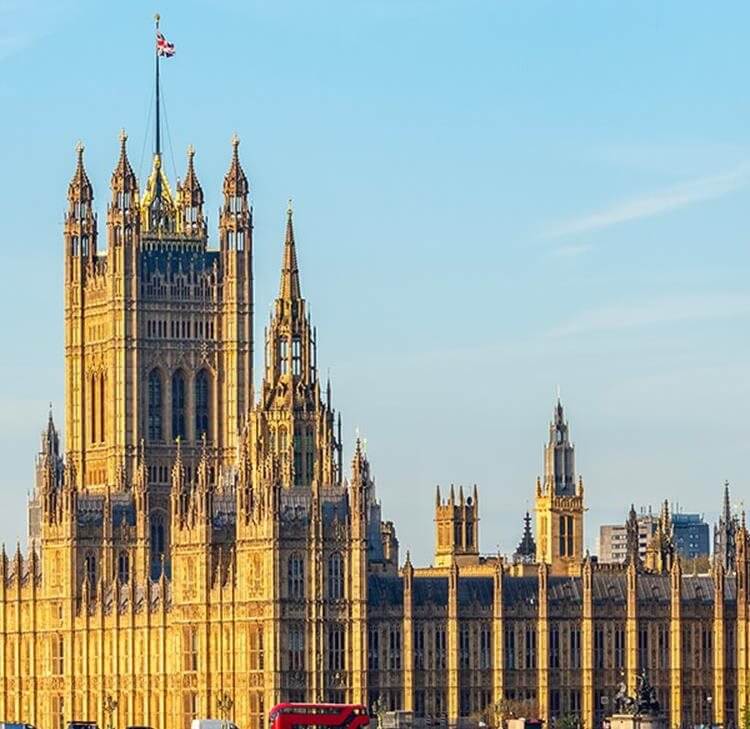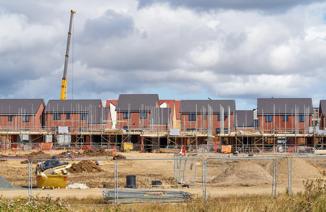Real estate quarterly update - October to December 2021
Read more about our latest real estate update aimed at in-house lawyers practising in the property and real estate sector.
Cases
Stonecrest Marble Ltd v Shepherds Bush Housing Association Ltd [2021] EWHC 2621 (Ch)
Where a lease provides a comprehensive scheme of repair and insurance, the court will not imply terms to cover any gaps in that scheme.
Wynne-Finch and others v Natural Resources Body for Wales [2021] EWCA Civ 1473
Historic exceptions of mines and minerals did not include mudstone, the common rock of the district.
Macey v Pizza Express (Restaurants) Ltd [2021] EWHC 2847 (Ch)
A landlord did not demonstrate the requisite intention required to oppose a statutory lease renewal under ground (g).
Kensquare Ltd v Boakye [2021] EWCA Civ 1725
Time was of the essence for the purposes of a landlord’s notice to increase a tenant’s interim service charge contribution.
Bath Rugby Ltd v Greenwood and others [2021] EWCA Civ 1927
A 1922 restrictive covenant was unenforceable as it did not clearly identify the land intended to be benefited by it.
Legislation
Commercial Rent (Coronavirus) Bill and Code of Practice for commercial property relationships following the COVID-19 pandemic
The draft Bill and the new Code cover the government’s plans to deal with rent arrears that accrued during the pandemic.
The key points from the Bill (as currently drafted) include the following:
- Arrears of rent, service charge, insurance and interest (and VAT on those sums) accrued by businesses that were forced by the government to close during the pandemic will be ring-fenced for the period from 21 March 2020 to 18 July 2021 (in England) (or, if earlier, the date when restrictions for the business in question were fully lifted). So this will not apply to essential retailers and other businesses that may have closed voluntarily.
- If the landlord and the tenant cannot agree how to deal with these ring-fenced arrears, either party can refer the matter to an arbitrator (appointed by an approved arbitration body) within six months of the legislation being passed (which the government hopes will be by 25 March 2022). An arbitrator’s decision to write off all or part of the debt or to give more time to pay the debt (up to 24 months) will be final and binding.
- Before referring a matter to an arbitrator, a party must notify the other party of their intention to do so (the Code suggest that this notification should also include a proposal with supporting evidence to settle the ring-fenced arrears). The other party has 14 days to respond and a reference to an arbitrator cannot be made for another 14 days after the response is received (or, if no response is received, until 28 days after the initial notification).
- In reaching their decision, an arbitrator should aim to preserve the viability of a tenant’s business, as long as that is consistent with preserving the landlord’s solvency. An arbitrator should disregard the possibility of either party borrowing money or restructuring their business when assessing viability and solvency and should also disregard anything done by either party to manipulate their financial affairs to improve their position. A tenant should aim to meet its rental obligations in full as long as that will not jeopardise preserving the viability of their business.
- If one party makes a proposal that is consistent with the above principles, an arbitrator must make the award set out in that proposal. If both parties make consistent proposals, the arbitrator must make the award set out in whichever of them the arbitrator considers to be the most consistent.
- A party applying for arbitration will have to pay the arbitrator’s fees. When making an award, an arbitrator will require the other party to reimburse half of those fees (or such other amount as the arbitrator considers appropriate). Otherwise, each party must bear their own costs.
- Either party can require the arbitrator to hold an oral hearing (which will be in public, unless the parties agree otherwise). If neither party requests an oral hearing, an arbitrator will make their decision based on the written documentation provided.
- A landlord cannot bring a debt claim (against a tenant or a guarantor), exercise CRAR, forfeit, wind-up a company (whether a tenant or a guarantor), obtain a bankruptcy order against an individual (whether a tenant or a guarantor) or draw down on a tenant’s rent deposit to recover any ring-fenced arrears during the moratorium period. This is the period beginning with the date the legislation is passed and ending either six months later (where no reference to an arbitrator is made) or the day that the arbitration concludes.
- If a debt claim for any ring-fenced arrears is brought after 10 November 2021 and before the legislation is passed, a tenant (or a guarantor) can apply to the court for the claim to be stayed. If judgment has already been given on such a claim, a landlord cannot enforce it or rely on it and an arbitrator can give relief from payment of the judgement debt (so that it can form part of the arbitration process).
- If a landlord draws down on a tenant’s rent deposit to recover any ring-fenced arrears before the legislation is passed, a tenant will not have to make up any shortfall in the deposit until the end of the moratorium period (an obligation to top up the deposit will count as rent arrears and can be included in the arbitrator’s award).
- If a bankruptcy order is made against a tenant (or a guarantor) in relation to any ring-fenced arrears after 10 November 2021 and before the legislation is passed, the order is to be regarded as void.
Existing restrictions against forfeiture, exercise of CRAR and winding-up companies (which apply to all business leases) are already in force until March 2022. However, they do not cover debt claims, drawing down on rent deposits and bankruptcy orders against individuals (which is why the parts of the Bill dealing with those matters will have retrospective effect).
The new Code replaces the voluntary one first published in June 2020 and applies to all rent arrears that have built up during the pandemic (so is wider in scope than the proposed legislation). It provides guidance on how parties should approach negotiation regarding rent arrears that accrued during the pandemic and is intended to align with the new legislation. In particular, it stresses that negotiations between landlords and tenants should aim to protect the viability of a tenant’s business, but not at the expense of a landlord’s solvency. It goes on to say that a tenant who can afford to meet its lease obligations in full should do so without delay and that any relief sought should be no greater than is necessary for a tenant to afford the lease payments (viability and affordability are a constant theme throughout). The Code also provides guidance on the arbitration process, the evidence that will be considered and the principles the arbitrator will apply.
The government has made it clear that the new arbitration scheme is intended to be used only as a last resort where landlords and tenants have been unable to resolve the issues between them. This is why the new Code has been published in advance of the legislation coming into force – to enable the parties to negotiate based on the principles that will be applied by an arbitrator. The Bill expressly makes it clear that it does not affect the ability of landlords and tenants to resolve amicably between themselves how to deal with the ring-fenced arrears.
A copy of the new Code can be viewed from here.
The National Security and Investment Act 2021
This Act comes into force on 4 January 2022 and establishes a new statutory regime for government scrutiny of, and intervention in, acquisitions and investments for the purposes of protecting national security.
The Act contains both a mandatory and a voluntary notification scheme.
The mandatory notification system is not relevant to purely property transactions. It requires anyone acquiring shares or voting rights exceeding certain thresholds in companies and other entities undertaking specified activities in certain sensitive sectors of the economy to obtain approval from the Secretary of State for Business, Energy and Industrial Strategy before completing their acquisition.
The voluntary scheme can apply to purely property transactions. Parties who consider that their transaction may raise national security concerns can voluntarily notify the Secretary of State.
The Secretary of State can call in to review any transaction covered by the Act (whether or not it has been notified) where there is a reasonable suspicion that it could give rise to a risk to national security. A call-in notice may be issued at any time while the transaction is in progress or contemplation or within six months of the Secretary of State becoming aware of a completed transaction, as long as this happens within five years of the transaction completing. The Secretary of State can impose conditions on the transaction or prohibit or unwind it.
Government guidance states that land is mainly expected to be an asset of national security interest where it is (or is proximate to) a sensitive site. Examples of such sensitive sites include critical national infrastructure sites or government buildings. However, the Secretary of State may also take into account the intended use of land.
Consultation and guidance
Consultation on changes to the Electronic Communications Code 2017 (the Code)
The Department for Digital, Culture, Media & Sport has published its response to this consultation which ran between 27 January and 24 March 2021.
The key points to arise include the following:
- There will be a new duty for operators to consider using Alternative Dispute Resolution (ADR) to settle disputes (or to narrow disputed issues) before making a court application. Operators must make landowners aware that ADR is an available option and the courts will be required to take account of any unreasonable refusal to engage in ADR when awarding costs.
- A process will be introduced to make it easier and cheaper for operators to access land and install digital infrastructure where a landowner fails to respond to repeated requests for access.
- Limited rights for operators to upgrade and share apparatus will be introduced in certain circumstances for apparatus installed before the Code came into force (as long as there is no material impact on the owner or occupier of private land).
- Operators in sole occupation under a previously expired Code agreement will be able to seek a new Code agreement under Part 4 of the Code (at present, the definition of “occupier” in the Code causes difficulty in this regard).
- The Landlord and Tenant Act 1954 will be amended so that the procedures for renewal disputes and imposing new Code agreement terms align more closely with the Code (where the main aim of that agreement is to confer Code rights).
- The government does not plan to revisit the statutory valuation framework nor make any changes to the Code regarding enforcement procedures or modifying ongoing agreements.
The changes to the Code will be effected through a new Bill, the Product Security and Telecommunications Infrastructure Bill.
A copy of the government response to the consultation can be viewed from here.
Electric vehicle charge points in residential and non-residential buildings
The Department for Transport has published its response to its 2019 consultation on this topic. The response indicates that the government intends to introduce the following changes to building regulations:
- New homes with on-site parking will have to have an electric vehicle charge point.
- Residential buildings undergoing major renovation that will have over ten on-site parking spaces after renovation will have to have at least one charge point for each dwelling, with associated parking and cable routes in all spaces without charge points.
- New non-residential buildings with over ten on-site parking spaces will have to have at least one charge point and cable routes for one in five spaces.
- Non-residential buildings undergoing major renovation that will have over ten on-site parking spaces after renovation will have to have at least one charge point and cable routes for one in five spaces.
The relevant changes to building regulations will come into force on 15 June 2022.
A copy of the government response can be viewed from here.
Land Registry
Amending an electronically signed deed
The Land Registry has added a new section 13.6 to Practice Guide 8 to cover this point. The guidance is described as ‘interim’, pending a more thorough review.
In essence, the process is as follows:
- The amended deed is printed out, amended and endorsed with the date of the amendment.
- If the amendment is ‘non-material’, the amendment can be signed by a conveyancer who confirms that they have the authority of their client (this confirmation can be given on the endorsed print-out, in a separate document or by selecting the appropriate option in the notes box on the portal).
- If the amendment is ‘material’ (i.e. one that is potentially prejudicial to a party’s legal rights or obligations under the document), it needs to be signed by the parties themselves.
- The electronic deed, the print-out and the confirmation from the conveyancer (if applicable) are then lodged with the application. If the lodging conveyancer holds the original signed and endorsed print-out, they can certify that the attachment is a true copy of the original.
A copy of Practice Guide 8 can be viewed from here.
Land Registry fees
The Land Registry has announced that, from 31 January 2022, its Scale 1 and Scale 2 fees will increase. Those submitted electronically will increase by 11% (for the majority of applications) and those submitted by post will increase by 21%.
Details of the increases can be viewed from here.
Digital applications
The Land Registry has announced that, from November 2022, it will no longer accept scanned or PDF copies of AP1s for changes to existing titles using the existing Document Registration Service on the portal. Instead, you will have to submit a digital AP1 using either the new Digital Registration Service on the portal or a case management system connected to the Land Registry’s Business Gateway platform.
The Document Registration Service will remain available for transactions creating new titles (e.g. leases and transfers of part).
A guide to submitting a digital AP1 (including a video for an overview on using the new Digital Registration Service) can be viewed from here.
Contact

David Harris
Professional Development Lawyer
david.harris@brownejacobson.com
+44 (0)115 934 2019








































